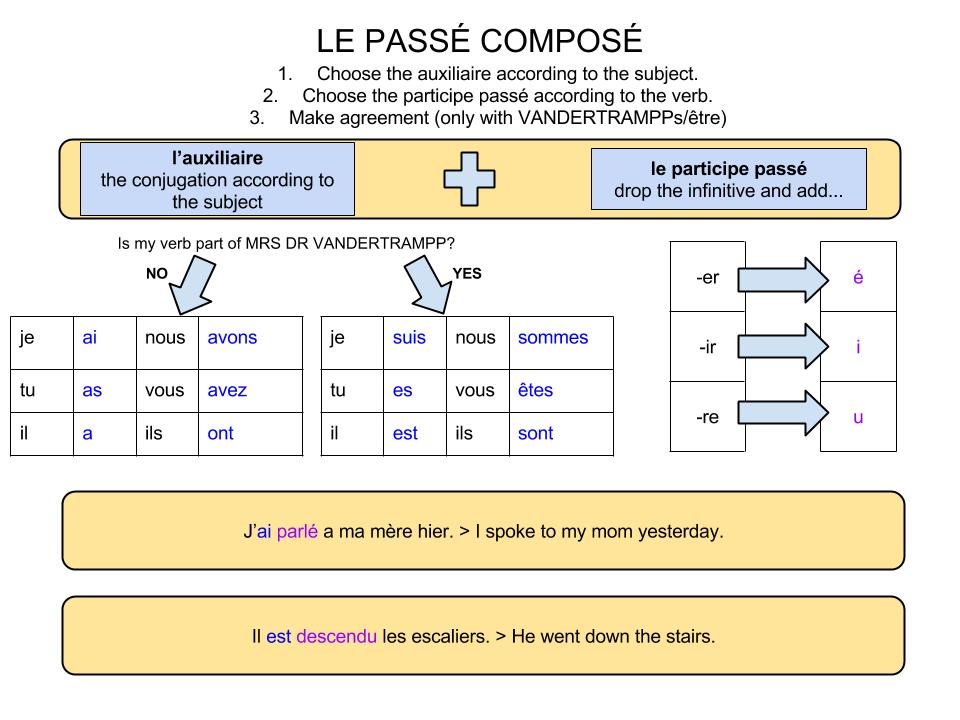

(By extension, the past participle also agrees with the subject, which is of course the same person or thing to which the reflexive pronoun refers.) In the Passé Composé, when the reflexive pronoun is a direct object of the verb, the past participle must agree in number and gender with that reflexive pronoun. (5) The reflexive pronoun can be either a direct or an indirect object of the verb with which it is used. In a negative question using inversion, neis still placed before the reflexive pronoun and pas comes right before the past participle. (4) When asking a question in the Passé Composé using inversion, the helper verb comes before the subject pronoun the reflexive pronoun still comes before the helper verb. (3) When asking a question in the Passé Composé using either Est-ce que or simple intonation, we use the same word order as in (1) or (2) above. You (informal) did not get (yourself) ready. (2) In a negative sentence, nealways comes before the reflexive pronoun, and pas always comes right after the helper verb. (Note that ME, TE, and SE become M’, T’, and S’ in front of any conjugated form of ÊTRE that begins with a vowel.) (1) The reflexive pronoun always comes before the helper verb. Here are some things to keep in mind when using reflexive verbs in the Passé Composé: Note that the SE becomes ME in order to indicate that the subject (I), and the action (WASH), is being done to myself (ME). But here, the subject (I) of the action and the object/recipient of the action are one in the same. In this second example, WASH is still the verb (action). And LAVER is a regular -ER verb that takes the helper verb AVOIR in the Passé Composé. Therefore, we don’t use a reflexive verb here. Note that the subject (I) and the object/recipient (DOG) of this verb are different. In the above example, WASH is the verb (action). With reflexive verbs, the helper verb is always going to be ÊTRE. The helper verb is always either AVOIR or ÊTRE, depending on which main verb you’re using. The Passé Composé (Past Tense) is formed with a helper (also called “auxiliary”) verb followed by the past participle of the main verb. But there are many more reflexive verbs in French. We use reflexive verbs in English, too (for example: “He behaved himself.”). The SE part of r eflexive verbs means “to oneself”. When conjugated, the endings of reflexive verbs follow the same pattern as standard ER, IR, and RE verbs. A reflexive verb is identified by the reflexive pronoun SE that precedes it in its infinitive form ( SE laver, SE préparer, etc.). In French, there are”normal” verbs and reflexive verbs. The action “reflects back” onto the subject! Reflexive verbs are used when the subject and object of a verb (action) are the same.


The action “reflects back” onto the subject! Study: La grammaire française: les verbes réfléchis au Passé Composé Creative Commons Image via The LEAF Projectįrench Grammar: Passé Composé with Reflexive Verbs


 0 kommentar(er)
0 kommentar(er)
